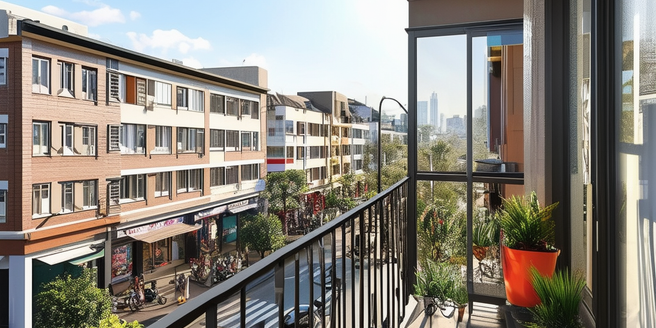Apartment Hunting On A Budget

Understanding Your Budget Limits
| Income | Expenses | Savings |
| $3000 | $1000 | $2000 |
| $3200 | $1500 | $1700 |
| $2800 | $1300 | $1500 |
| $2500 | $1200 | $1300 |
| $2200 | $1000 | $1200 |
| $3500 | $1500 | $2000 |
Researching Affordable Neighborhoods
Finding an affordable neighborhood is crucial for apartment hunting on a budget. Start by identifying areas that match your monthly rental budget. Research the cost of living, including utilities, groceries, and transportation. Don’t forget to account for potential hidden costs such as parking fees or building maintenance. Incorporate your non-negotiable needs and explore how each neighborhood measures up. Use online resources like local forums, social media groups, and real estate websites to gather insights from current residents. Visiting neighborhoods can give you a feel for the area and help you assess amenities like parks, schools, and public transportation. Prioritize safety and convenience when evaluating neighborhoods to ensure you find a place that aligns with your needs and standards while fitting within your financial constraints.
Utilizing Online Real Estate Platforms
Online real estate platforms are instrumental in finding budget-friendly apartments. With the growing popularity of these tools, more features are being added to enhance user experience. Users can now benefit from improved search algorithms that better match their needs. Websites and apps like Zillow, Trulia, and Craigslist allow you to filter search results by price, location, and other criteria. Set up alerts to receive notifications when new listings that match your budget become available. Use features like virtual tours to save time and money on in-person visits. Reading reviews and checking ratings can help you avoid potential pitfalls and scams. These platforms often have detailed information on rental properties, making it easier to compare options and make informed decisions without breaking the bank.
Setting Priorities for Your Must-Haves
Before diving into apartment hunting, list your non-negotiables, like a certain number of bedrooms, proximity to work, or pet-friendliness. Make sure everyone involved in the move agrees on these essentials to avoid conflicts later. It’s important to have open and honest discussions about what each person values in a living space. Distinguish between “must-haves” and “nice-to-haves” to stay within your budget. Understanding your priorities helps narrow down your search and prevents overspending on unnecessary features. Consider compromises, such as opting for a smaller space in a better location or choosing an older building with lower rent. Setting clear priorities aligns your expectations with what’s feasible and helps you find a suitable apartment without straining your finances.
Visiting Potential Apartments
Physical visits to apartments are essential to see if the actual unit lives up to the listing’s description. Schedule viewings with several options to compare their conditions, layouts, and neighborhoods. During these visits, pay attention to the natural lighting each apartment receives. Look out for issues like water damage, pests, and noisy surroundings that might not be apparent in photos. Remember to check the water pressure and plumbing during your visit. Take measurements and photos during visits to compare spaces later. Speak with current tenants if possible to get firsthand opinions about the landlord, maintenance, and community. These visits provide valuable insights and help ensure you choose a comfortable, budget-friendly apartment that meets your needs.
Negotiating Rent and Lease Terms
Negotiation can significantly reduce your rental costs and secure better lease terms. Start by researching market rates for comparable properties to support your case for a lower rent. Landlords are often willing to negotiate, especially if the property has been vacant for a while. You may also find online tools and local resources helpful in gathering this data. Make sure to organize your findings clearly to present a strong case. Propose a longer lease term in exchange for reduced monthly rent or request modifications like including utilities in the rent. Being polite and reasonable during negotiations can make it easier for landlords to meet your requests. Negotiation helps maximize value and ensures you’re not paying more than necessary.
Considering Roommates to Cut Costs
Sharing a rental with roommates is a proven way to split costs and make apartments more affordable. Search for potential roommates through trusted networks, online platforms, or local community boards. Ensure compatibility by discussing lifestyle habits, cleanliness, and financial responsibilities beforehand. It’s also a good idea to meet in person before making any decisions. Additionally, consider conducting a background check for safety reasons. Drafting a roommate agreement can prevent disputes by clearly outlining each person’s responsibilities and expectations. Establishing regular communication can also help address issues before they escalate. Living with roommates not only reduces rent but also allows you to share utility bills, groceries, and household supplies, making overall living expenses more manageable.
Looking for Move-In Specials and Deals
Many landlords and property management companies offer move-in specials and promotions to attract new tenants. These deals can include reduced rent for the first few months, waived application fees, or free utilities. Keep an eye out for such offers by checking online listings, contacting property managers directly, and visiting rental offices. Additionally, engaging with local rental communities on social media can lead you to exclusive deals. It is also worth asking current tenants for their insights and recommendations. Sometimes, signing a lease during off-peak seasons can also yield better deals. These specials can provide significant savings upfront, making your apartment hunt more affordable while allowing you to allocate funds for other moving expenses.
Reading Lease Agreements Carefully
Thoroughly reading lease agreements is crucial to avoid unexpected costs and unfavorable terms. Pay close attention to clauses about rent increases, maintenance responsibilities, and penalties for breaking the lease. Ensure the agreement includes all negotiated terms, such as promised repairs or included utilities. If possible, compare the lease with common local regulations to ensure it aligns with legal standards. Clarify any ambiguous language with the landlord or property manager before signing. It’s also wise to have a legal professional review the agreement to catch any potential issues you might miss. Understanding the lease in detail helps you avoid hidden fees, ensures you know your rights and responsibilities, and prevents costly misunderstandings during your tenancy.
Preparing for Moving Expenses
Moving expenses can add up quickly, so it’s essential to budget for them in advance. Costs include hiring movers, renting a truck, purchasing packing supplies, and setting up new utilities. Consider creating a detailed list of all potential expenses to have a clear overview. Save money by enlisting friends to help, using second-hand boxes, and comparing rates from multiple moving companies. Researching and organizing your move well in advance can also prevent last-minute expenses. Setting aside funds for unexpected expenses, such as security deposits or minor repairs, ensures a smoother transition. Additionally, reviewing your lease agreement carefully for any hidden fees can save you from surprise costs later. Proper planning and budgeting for moving expenses help ensure you’re financially prepared and avoid stress during the moving process.
